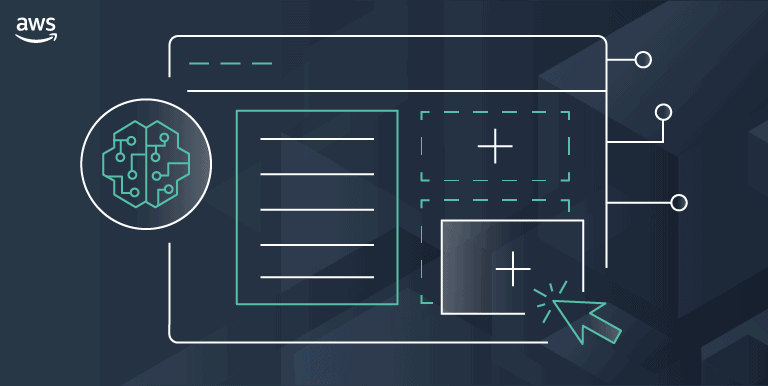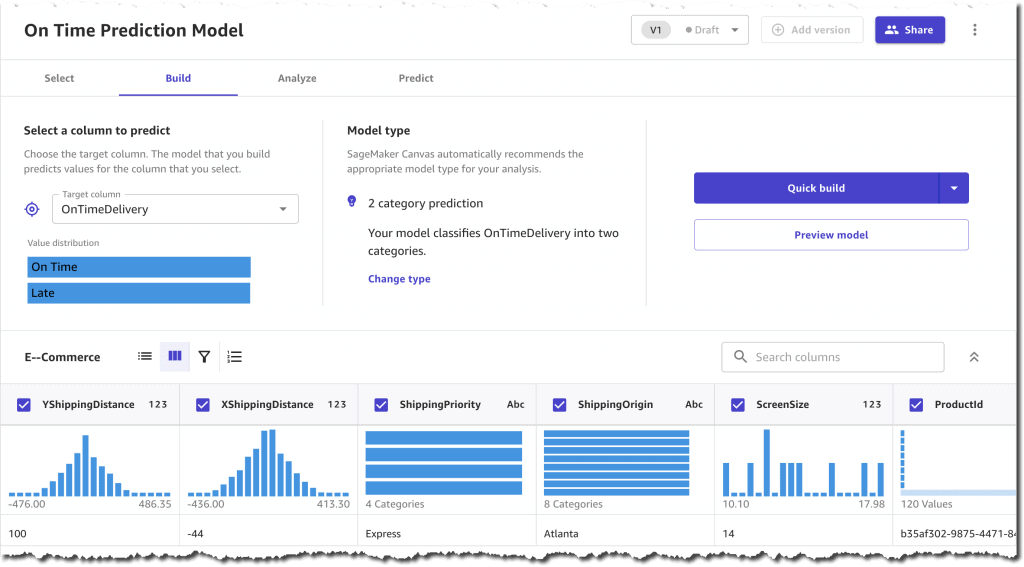AWS announces Amazon Sagemaker Canvas. The no-code solution allows more users to build machine learning models. Extensive programming and ML knowledge are not required.
Companies are using more and more data to drive their business processes. To avoid slowing down business processes and add more intelligence to these processes and the underlying IT systems,
they need systems that can accurately predict certain business outcomes.
Machine learning models play a big role in this. Companies often rely on data scientists and data engineers for the latter. According to the tech giant, business analysts and other users could often act faster if they could also develop these models.
Introduction of Amazon SageMaker Canvas
That’s why Amazon is introducing SageMaker Canvas. The solution enables business analysts without programming knowledge to build and deploy algorithms quickly. The models are supposed to be immediately deployable for generating accurate forecasts.
End users can use AWS Sagemaker Canvas to build ML models on a visual and no-code basis through an intuitive interface. This allows them to access data sources in cloud or on-premises environments. It also allows them to combine datasets, train accurate models and generate new predictions when new data is available with a single click.
Other functionality
Other available functionality includes creating hundreds of ML models under the hood and generating individual or batch forecasts. In addition, the tool supports various types, such as binary classification, multi-class classification, numerical regression and time series forecasting. As a result, business analysts are able to perform various actions, such as fraud detection, churn mitigation and inventory optimization.
AWS SageMaker Canvas is generally available immediately in the Amazon regions of US East (Ohio), US East (N. Virginia), US West (Oregon) and Europe (Frankfurt and Ireland). The tool supports local datasets as well as data stored in Amazon S3, Amazon Redshift or Snowflake.

